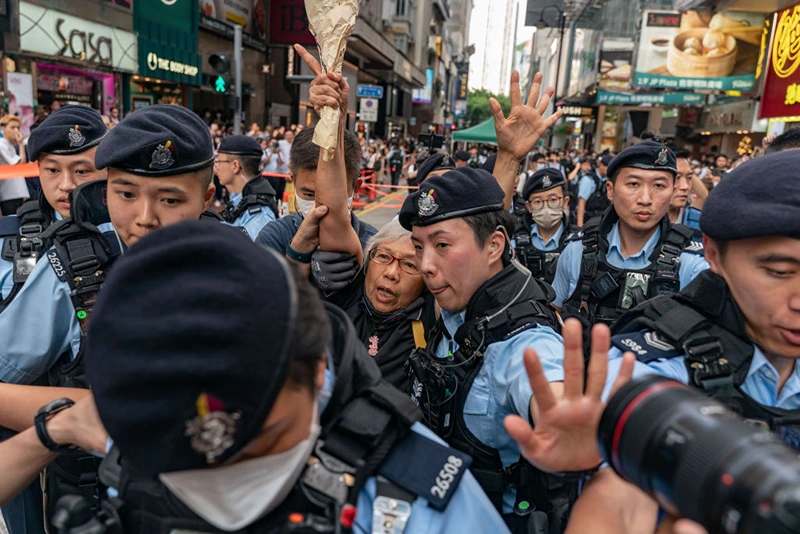
OAN’s Noah Herring
2:22 PM – Monday, July 3, 2023
The U.S. has recommended that Americans “reconsider travel” to mainland China in a new travel advisory, due to “arbitrary” law enforcement and the risk of wrongful detention.
Although a travel advisory was previously listed, China was moved to a “Level 3: Reconsider Travel” destination rather than the prior “Level 2: Exercise increased caution” destination due to the added risk of “arbitrary enforcement of local laws.”
The advisory came after a 78-year-old U.S. citizen was given a life sentence for spying charges in May. China also just passed a broad counterespionage law that allows foreign businesses within the country to be raided.
“The People’s Republic of China (PRC) government arbitrarily enforces local laws, including issuing exit bans on U.S. citizens and citizens of other countries, without fair and transparent process under the law,” the U.S. advisory said.
“U.S. citizens traveling or residing in the PRC may be detained without access to U.S. consular services or information about their alleged crime,” it further warned, stating that Chinese authorities appear to have broad discretion to deem a wide range of documents, data, statistics, or materials as state secrets and to detain and prosecute foreign nationals for alleged espionage.”
Potential offenses that could be perceived as espionage, according to the law, include sending electronic messages that are critical of Chinese policies or even conducting research into areas that are deemed sensitive.
Americans were also warned about their drug usage before travel to China, as well as participating in protests “or any other activities that authorities interpret as constituting an act of secession, subversion, terrorism, or collusion with a foreign country.”
Similar advisories have been issued for the “semi-autonomous” Chinese regions of Hong Kong and Macao.
China generally does not respond well to what the nation considers U.S. efforts to challenge its Communist Party-led system. China has also issued its own travel advisories to the U.S. warning about crime, anti-Asian discrimination, and the high cost of emergency medical assistance.
There was no immediate response from Chinese officials regarding the travel advisory on Monday.
The travel advisory comes as tensions between China and the U.S. have recently heightened. Secretary of State Antony Blinken (D) traveled to Beijing last month in an effort to stop the plummeting relationship.
Blinken reported that the U.S. and China made progress in their meeting talks, but still had many disagreements regarding the military.
Blinken also brought up the cases of three Americans who were reportedly wrongfully detained in China. He noted that negotiations are underway to release Kai Li, Mark Swidan and David Lin, the three detained U.S. citizens.
Stay informed! Receive breaking news blasts directly to your inbox for free. Subscribe here. https://www.oann.com/alerts

